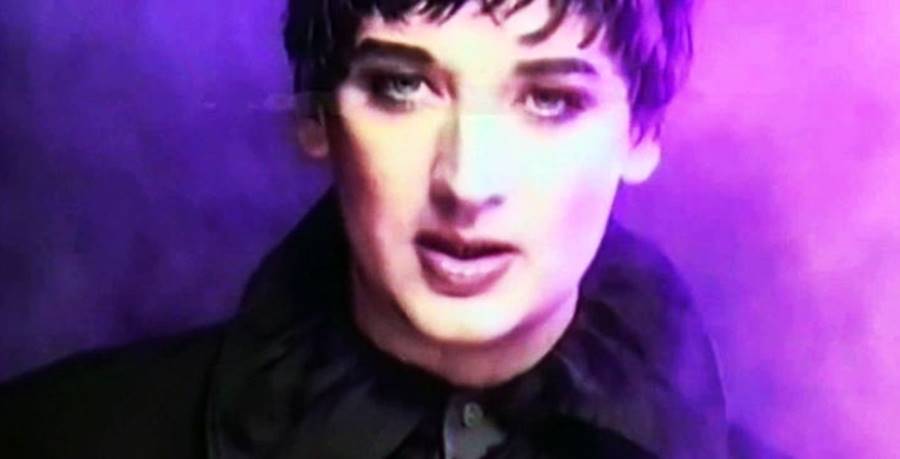
By Jae-Ha Kim
Chicago Sun-Times
March 3, 1993
Just when it seemed that Boy George was destined to become a Trivial Pursuit question, “The Crying Game” entered his life and rejuvenated his career. George sings the theme song for the low-budget sleeper, nominated for six Academy Awards.
“Since the film’s been doing so well, people ask me all the time if this song is paving the way for my comeback,” George says in a conversation from his London home. “If the record sells well, I don’t care what people call it.
“When I was approached about singing the song, I didn’t do it because I thought it could `revitalize’ my career. I’m really surprised, because I think the people in America have taken to this film much more than in Europe.
“It didn’t seem like a picture that would do particularly well with the masses, like a big blockbuster Arnie Schwarzenegger or Bruce Willis picture that the American film industry has cornered. Or cornied.”
“The Crying Game” tells a provocative love story with a surprise twist that critics and most filmgoers are keeping secret. George’s smooth voice is perfect to ‘roon the song, but it’s also clear that selecting the gender-bending singer is a marketing coup.
The film features three versions of “The Crying Game”: Dave Berry’s 1964 original; a second by co-star Jaye Davidson, who portrays the sexy love interest, Dil, and Boy George’s. Ironically, George’s rendition is featured less prominently than the other two, although it’s his version that’s being played on radio stations. Previously unavailable in the United States, both the single and soundtrack have been released here on SBK Records.
Most filmgoers won’t hear George unless they stay through the closing credits.
“When I saw the final cut, I was really shocked because (I thought) my song wasn’t in it,” George said. “The titles came up and I was like, `Where is the song?’ Then halfway through the titles, it came on. I was kind of miffed about that, but then it didn’t do Bryan Adams (who sang the love theme to `Robin Hood: Prince of Thieves’) any harm, did it?”
George released three solo albums since leaving Culture Club in the mid-’80s, but received more notoriety for his heroin addiction, which he has kicked, and for partying.
A drug conviction barred him from entering the United States. After it was lifted, he did a mini-tour last year.
Born George O’Dowd in June, 1961,’the flamboyant singer briefly flirted with the nom de plume Lieutenant Lush before ditching his surname and becoming Boy George.
As the singer for the ’80s pop-dance group Culture Club, George made a new kind of MTV heartthrob: a dewy lipped, dress-wearing frontman who was prettier than many of the teenage girls who idolized him. Many of his fans had no clue he was bisexual.
These days, his look is relatively subdued, with his natural “mouse brown” hair cut short and neat. But like Culture Club’s last hit, he still is a “Karma Chameleon” who occasionally wears lipstick and eyeliner.
“Part of the fun of performing is dressing up and getting campy,” George said. “That’s why I can’t wait to get back and tour. I really like the simplicity of being just me out there.”
That tour won’t be until late summer at the earliest. George currently is finishing his autobiography, which is slated for an August release, as well as his fourth solo LP.
“What I’ve tended to do in my life is do 25 things at once,” George said. “So I want to make sure that I finish this book first and then concentrate 100 percent on the album. I don’t want anything to suffer.”
Laughing, he added, “After all, this is supposed to be my comeback, isn’t it?”